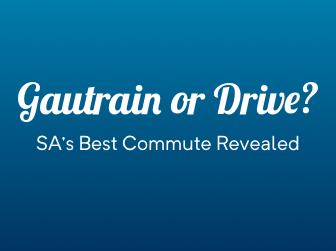Several cities across the country are struggling with severe congestion. Commuting often means sharing the roads, but the real question is: at what cost? For many motorists, the frustration of traffic is all too familiar. Yet, one South African city has earned a spot in the global top 10 for the worst traffic congestion.
This city in SA makes the global list for the most ‘crammed’ roads.
Driving in Cape Town is becoming increasingly difficult, with more motorists on fewer roads—an issue that's only growing as the population expands through urban areas. infrastructure struggles to keep pace. This problem is highlighted in the 2024 INRIX Global Traffic Scorecard, which analyses transportation data from nearly 946 urban areas worldwide. According to the INRIX group, 'Traffic can also be seen as a barometer for the economy. The movement of people, goods, and services drives demand for road travel, but when demand surpasses the available road space, congestion results.'
The good news is that, while traffic is a frustrating aspect of our lives, it also shows us how active the economy is.
How did Cape Town make this list?
94 hours – that’s how much time Cape Townians have lost due to traffic. Calculating commute times involves looking at the duration of travel to and from key employment hubs within the area, factoring in neighbouring commuting zones.
Johannesburg ranks second, losing 55 hours to congestion, while Pretoria comes in third with 45 hours lost. Across the rest of South Africa, Durban loses 25 hours, Pietermaritzburg 33 hours, Port Elizabeth/Gqeberha 30 hours, and East London records the lowest at 27 hours. In contrast, Welkom loses only six hours to traffic every year.
Driving in Cape Town
As of 2024, The City of Cape Town and the South African National Census have revealed that Cape Town’s population stats for the city reports an approximate 4.9 million residents, with a growth rate of 1.80% since 2022.
As for public transport, the MyCiTi bus system offers commuters a reliable and easy-to-use option for those without personal transportation. With over 40 routes and more than 50 million passenger journeys completed, it is becoming increasingly easier to get around, both for locals and foreign visitors.
Behind the numbers
According to the Transport Statistics Bulletin 2023, the Western Cape has 2,142,628 registered motor vehicles. This figure is notable when compared to the region's population of seven million.
Factors like rush hour make driving frustrating—that goes without saying. While it’s not an exact science, typical rush hours range from 7:30 to 9:00 am, and detours are becoming a common backup to cut back on time, even if it’s just a few minutes. However, that’s not to say commuting is easy, especially when the nation faces an estimated 1,700 to 1,800 fatalities on the road each year.
Tourists in the city
Tourists play an important role in the economy. For instance, Stats SA reported that the majority of tourists come for holiday purposes. A notable number of tourists from SADC and North African countries travelled to South Africa in early-to-mid 2024. Among overseas visitors, Australasia had the highest proportion of holiday tourists at 99.2% (9,758), followed by North America at 98.5% (32,143), Europe at 97.7% (91,102), Central and South America at 97.5% (5,330), the Middle East at 95.9% (2,963), and Asia at 93.4% (15,368).
Cape Town's peak tourist season typically occurs during the summer months, from December to April, coinciding with local school holidays. This period often results in increased traffic congestion, as many visitors rent vehicles.
The Top 10 global list for the worst traffic
- Istanbul, Turkey ranked as one of the most congested urban areas, with road users losing 105 hours to traffic, marking a 15% increase in delays from 2023.
- This was more than the 102 hours lost in New York and Chicago due to traffic congestion.
- London road users experienced 101 hours of delays.
- Paris and Mexico City tied for fifth place, each with 97 hours of traffic delays.
- Cape Town ranked seventh, with 94 hours lost to traffic, surpassing Los Angeles at 88 hours.
- In last place, Brisbane loses 84 hours each year, the least amount on the list.
List of cities with the highest traffic delay times worldwide:
- Istanbul
- New York
- Chicago
- London
- Mexico City
- Paris
- Cape Town
- Jakarta
- Los Angeles
- Brisbane
Overview
Many motorists find themselves stuck in traffic day after day, contributing to a mounting sense of frustration and fatigue. The stress and exhaustion that come with long hours behind the wheel can impact not only individuals' health and well-being but also productivity and overall quality of life. It’s no surprise that traffic is a key pain point for many urban dwellers. But it’s not just about inconvenience—it also has a profound impact on the economy, as goods, services, and people are delayed, which in turn affects business operations and overall efficiency.
This is a stark reminder of the growing challenges faced by urban centres, where the demand for road space continues to outstrip supply, leading to prolonged delays and increasing frustration for commuters.
As the world continues to urbanise, addressing traffic congestion is a complex issue requiring innovative solutions, whether through improved infrastructure, better public transport options, or technological advancements to optimise traffic flow.
Unsurprising fuel price fluctuations make for an interesting 2025
The Latest Updates on the New Hyundai Palisade


